As we approach 2024’s halfway point it’s time to take a temperature of the finest cinema thus far: we’ve rounded up our favorites from the first six months of this year, some of which have flown under the radar. Kindly note that this is based solely on U.S. theatrical and digital releases from 2024.
Check out our picks below, as organized alphabetically, followed by honorable mentions.
The Beast (Bertrand Bonello)

Where to begin with Bertrand Bonello’s wonderful The Beast? It’s been so gratifying to see the initial reaction to the French filmmaker’s tenth feature, after several decades of increasingly remarkable work––the majority of it dark, beautiful, and sleazy. In fact, for what a discomforting and despairing experience much of The Beast is, when I’ve thought back its moments of real, uncomplicated cinematic pleasure, its verve and sense of joyousness, are what mark my memories. It’s romantic, without a capital-R. – David K. (full review)
Where to Watch: Theaters, VOD
Chime (Kiyoshi Kurosawa)
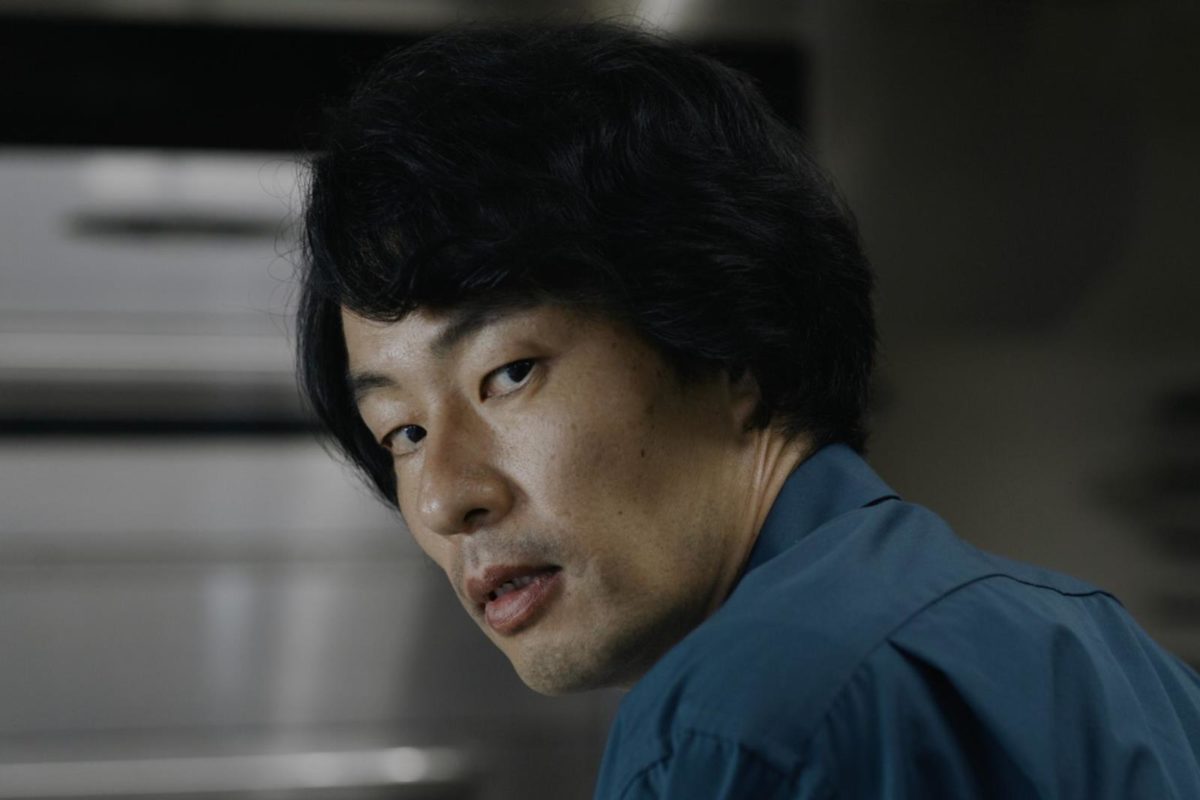
How do you even start to write about Chime, a film that keeps secrets guarded and lives off the shocks of its knife-edge turns? It’s safe to say the director is Kiyoshi Kurosawa. It’s also safe to say Chime is 45 minutes long, making it feel more like the pilot for a TV series we’ll never see––only adding to the intrigue. Like much of the director’s work, it’s the kind of thing you could have seen late night on television when you were much too young. It would have also left a mark. – Rory O. (full review)
Where to Watch: Roadstead
Coma (Bertrand Bonello)
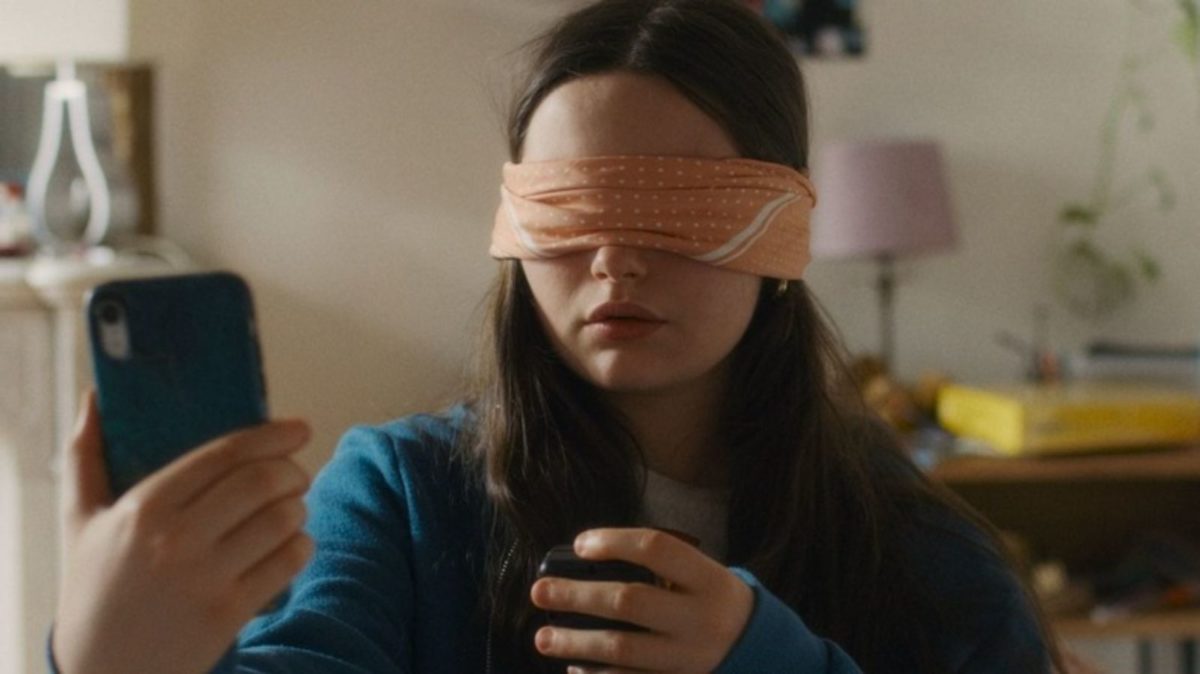
A contemporary cliché that weakly attempts to diagnose what ails us in modern life is the idea of being addled by technology––of our minds and attention spans swamped by screens, content, scrolling. But as the pandemic hit this notion gained a new relevance: it’s not that the virtual realm of content and media was luring us away from our reality––faced with an indefinite lockdown, it had finally become our sole one. Even though this can be poorly rendered by some, it’s the more sensitive and aware artists, such as Bertrand Bonello with his new feature Coma, that remind of the urgency to confront it. – David K. (full review)
Where to Watch: Theaters
Do Not Expect Too Much From the End of the World (Radu Jude)

Long before the formal somersaulting of his 2021 Berlinale winner Bad Luck Banging or Loony Porn, the Romanian director’s films have hopscotched across genres and tones, weaving together the vernaculars of essay films, documentaries, and archives into projects that unfurl like mosaics. Do Not Expect Too Much from the End of the World follows in their footsteps. A collage perched between road movie and black comedy, Jude’s latest is another effervescent study of life in the 21st century, a work that’s engineered to both sponge something of our screens-infested zeitgeist and interrogate its textures. Few filmmakers are so reliably able to conjure snapshots of modern capitalism and its neuroses; fewer still can douse those documents with so much playfulness and wonder as Jude. – Leonardo G. (full review)
Where to Watch: MUBI
Evil Does Not Exist (Ryusuke Hamaguchi)

Amongst a typically raucous lineup at this year’s Venice Film Festival comes Evil Does Not Exist, a work in which tensions rise over little more than the placement of a septic tank. It’s the latest from director Ryusuke Hamaguchi and his first since 2021’s miraculous double-punch of Wheel of Fortune and Fantasy and Drive My Car. Evil concerns a clash of urban and rural sensibilities: a story about a small but hardy group of people who wish to stop the development of a glamping site. Devotees of Kelly Reichardt’s sylvan melancholies will feel perfectly at home. – Rory O. (full review)
Where to Watch: Theaters
The Feeling That the Time for Doing Something Has Passed (Joanna Arnow)
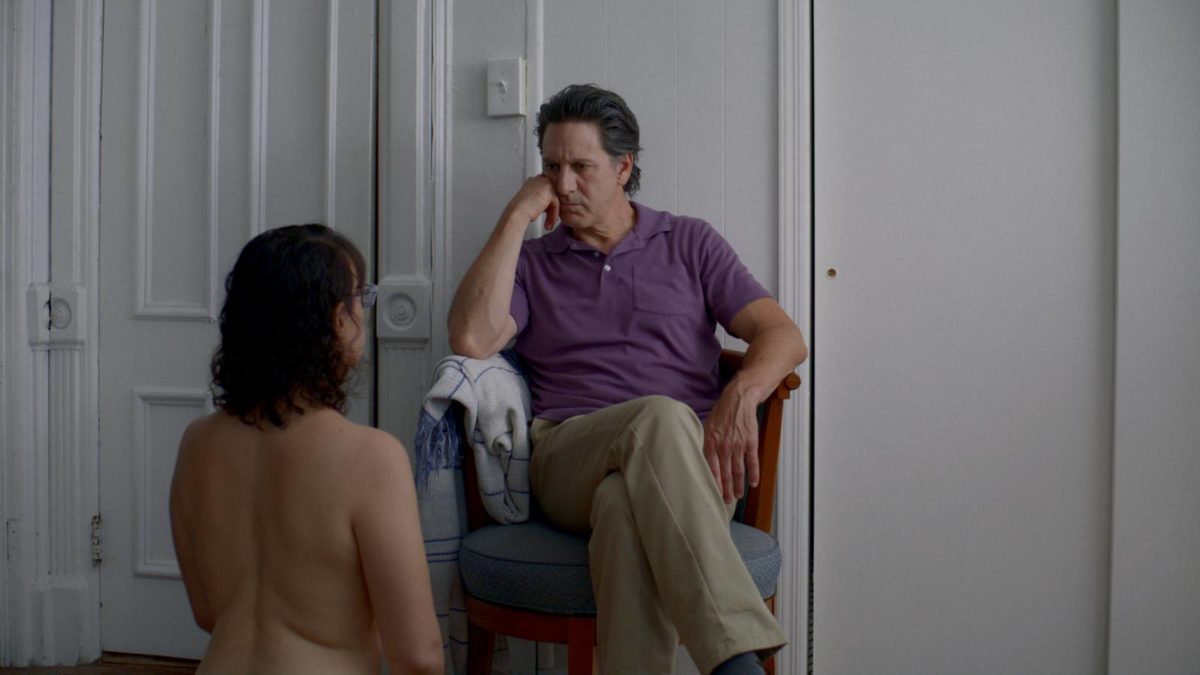
In The Feeling That the Time for Doing Something Has Passed, Ann, a lugubrious New Yorker, sleepwalks through her daily life––colorless job, perennially disappointed parents––while maintaining a long-term sub/dom relationship with an older man. She visits her Jewish family, goes to yoga, and attempts some Internet dating. Invariably she winds up in her boyfriend’s lifeless brownstone. Executive-produced by Sean Baker, this is the feature debut of writer-director Joanna Arnow, a Brooklyn-based actor and filmmaker who made a name for herself as a wry observer of millennial sex lives and stasis with a couple of award-winning shorts: Bad at Dancing (2015) and Laying Out (2019). In Dancing, Arnow sat naked on the floor, casually asking for advice from a friend having sex right in front of her. The sense that everyone around you is getting their shit together (and maybe getting laid) is present again here; yet eight years hence, it arrives with the added humility of lived experience. – Rory O. (full review)
Where to Watch: VOD
Free Time (Ryan Martin Brown)
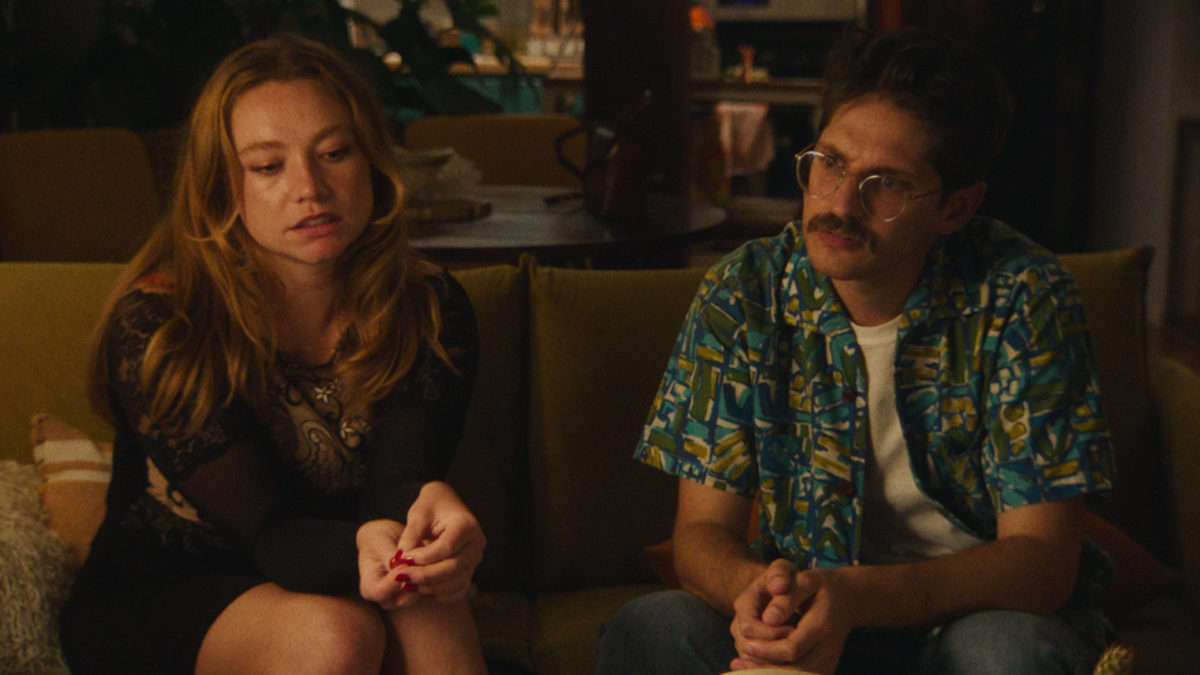
Free Time opens on an office meeting between Drew (Colin Burgess) and his boss. Drew is dissatisfied with his data-analysis position because it’s too much data entry and too little analysis. “The computers do all of the analysis for you now. It’s really just… data,” he laments. The meeting ends unexpectedly with Drew surprising himself (and his boss) by putting in his two-week notice. It’s a savvy cold open that clues us into Drew’s lack of self-awareness being a source of amusement in the narrative to follow. – Caleb H. (full review)
Where to Watch: Theaters
Furiosa: A Mad Max Saga (George Miller)

Furiosa was always going to live or die on the strength of its chase scenes; credit to Miller and his team for coming up with a new box of tools here. The War Rig, for one, is given a shiny update, complete with two auxiliary grappling arms and a tassel of maces that hang from the back, simply begging to be spun around. (Better still: the chasing pack have learned how to glide.) Miller’s most radical act in Furiosa is to momentarily pare things down: its incredible opening sequence makes do with no more than four motorbikes, a sniper rifle, and the wide expanse of the desert. It’s static, minimal, strangely beautiful, and the best part of a film that often struggles to recreate such magic. It also proves an early warning sign of Furiosa‘s more orderly aesthetic––a considerably less-gritty approach that lends some of the action a striking sense of clarity but makes much of the CGI look quite motion-smoothed and a little janky. – Rory O. (full review)
Where to Watch: Theaters, VOD
Ghostlight (Kelly O’Sullivan and Alex Thompson)
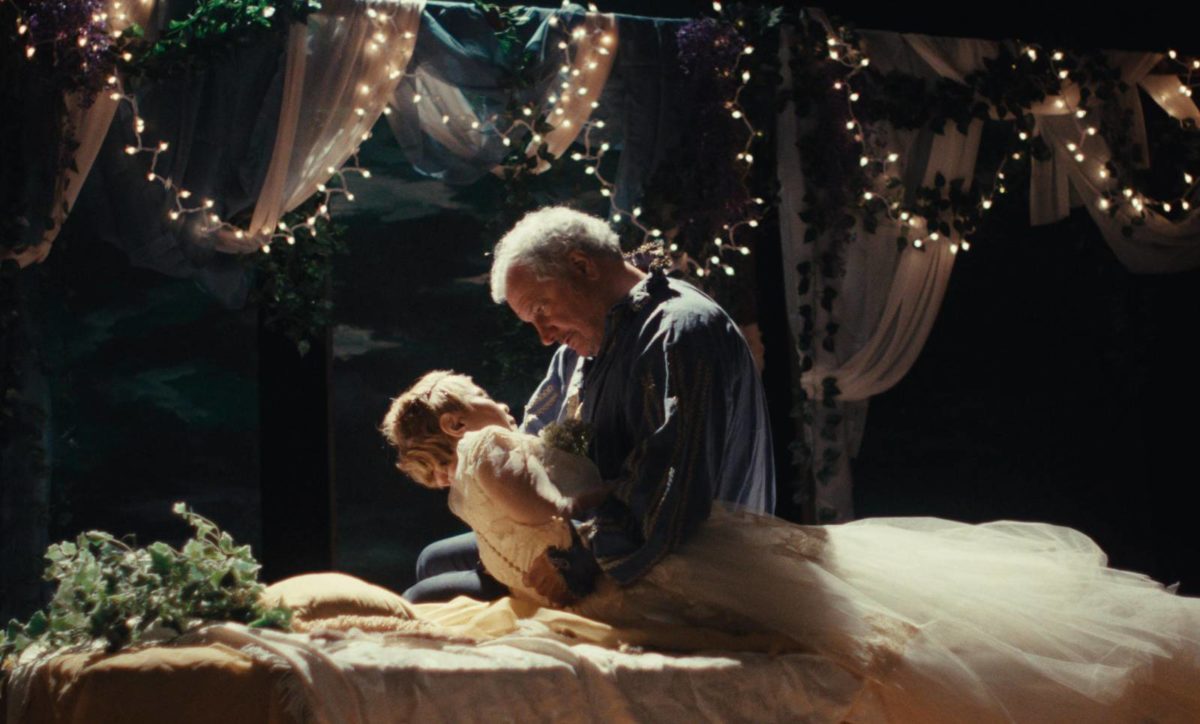
A masterfully crafted work with nearly no false notes, Kelly O’Sullivan and Alex Thompson’s Ghostlight is a tender drama bearing profound moments of humor and small triumphs. The smartly constructed script by O’Sullivan buries the lede, revealing new narrative information with each layer as we watch a nuclear family slowly come apart and, later, find solace in the wake of their son’s suicide. Anchored by a real-life family, the film feels as if it’s been meticulously workshopped with the same intimate collaboration that gave O’Sullivan and Thompson’s last feature, Saint Frances, its authentic nuances. – John F. (full review)
Where to Watch: Theaters
Here (Bas Devos)
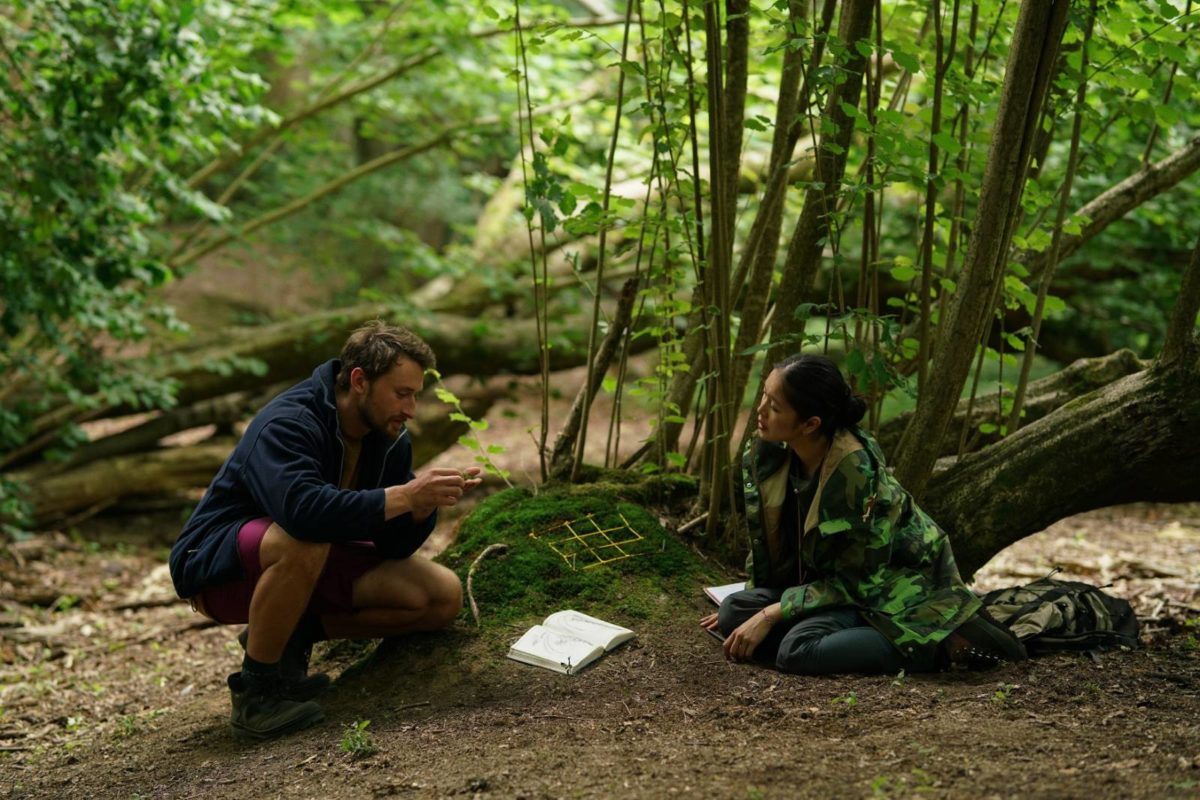
For anyone keeping tabs on Bas Devos’ career, it’s notable that the drama of his latest film Here is set in motion by something as benign as a pot of soup. A charming portrait with a flânuerial spirit, the film follows a Brussels-based Romanian construction worker who, having decided to move home, cooks what’s left in his fridge, packages it up, then gifts it to family, friends and––much later––a Belgian-Chinese woman doing a PhD in moss. She is played by Liyo Gang and he is played by Stefan Gota. It’s 81 minutes long, has relatively little dialogue, and tugs the heartstrings in all the best ways. It might be the most benevolent film of this year. – Rory O. (full review)
Where to Watch: Theaters
Hit Man (Richard Linklater)

Hit Man, directed by Richard Linklater and co-written by Glen Powell, is a balm. It’s soothing and refreshing. Featuring magnetic chemistry between its two leads (Powell and Adria Arjona), a premise built for ease of enjoyment, and a slew of funny supporting characters (Retta the all-star among them), this film will brighten your weekend, deepen your date night, or just make you feel happy for a couple of hours. – Dan M.
Where to Watch: Netflix
The Human Surge 3 (Eduardo Williams)
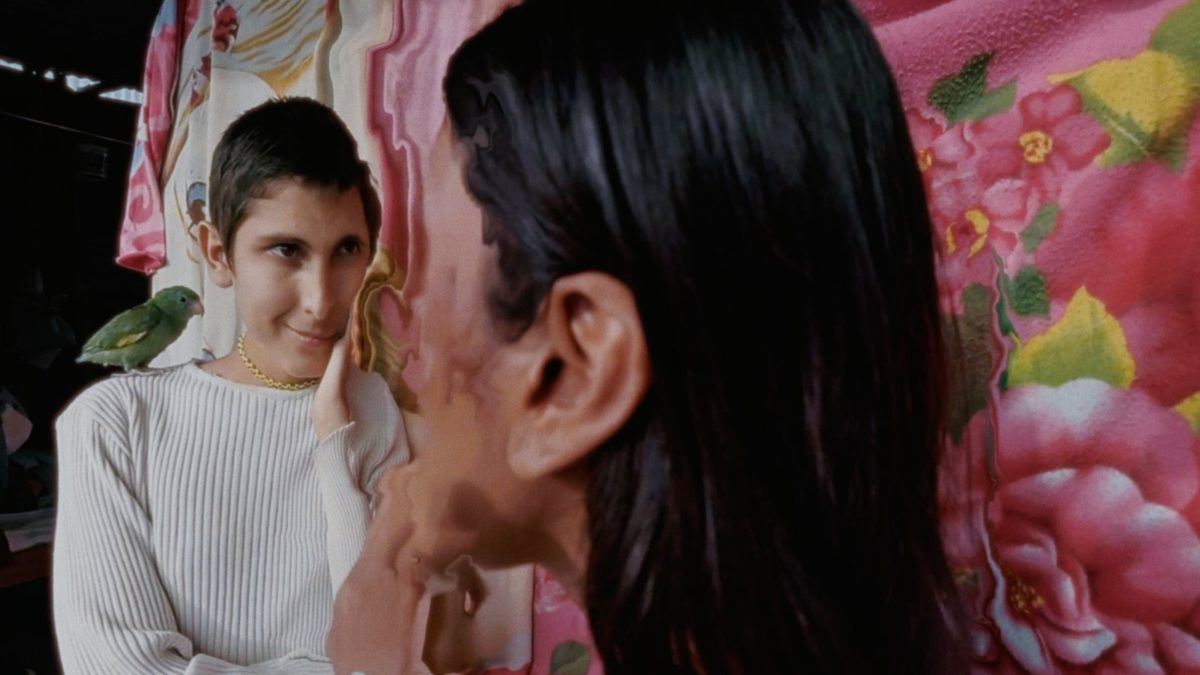
The Human Surge 3, Williams’ second feature and follow-up to his 2016 The Human Surge (the first installment of a trilogy with no second chapter), is another stupefying project designed to push the medium toward new, uncharted paths. Like the first Surge, this too unfurls in its barest terms as a hangout movie, cartwheeling across three different countries (Sri Lanka, Peru, and Taiwan) to dog a few low-income twenty-somethings as they fritter away time with friends in-between odd jobs. But where the saga’s first episode played like three shorts stitched together, traveling across distinct settings in standalone segments, The Human Surge 3 trades that for something far more elliptical and confounding. The youngsters at its center––Meera and Sharika, Livia and Abel, and Ri Ri and “BK”––aren’t confined to their respective countries but keep showing up in each other’s locales, and the film itself seems to exist in a multiverse that collapses time and space; one minute we’re roaming the rain-soaked slums of Iquitos, the next we’re strolling past Sri Lanka’s igloo-shaped, anti-tsunami houses. – Leo G. (full review)
Where to Watch: Theaters
In a Violent Nature (Chris Nash)
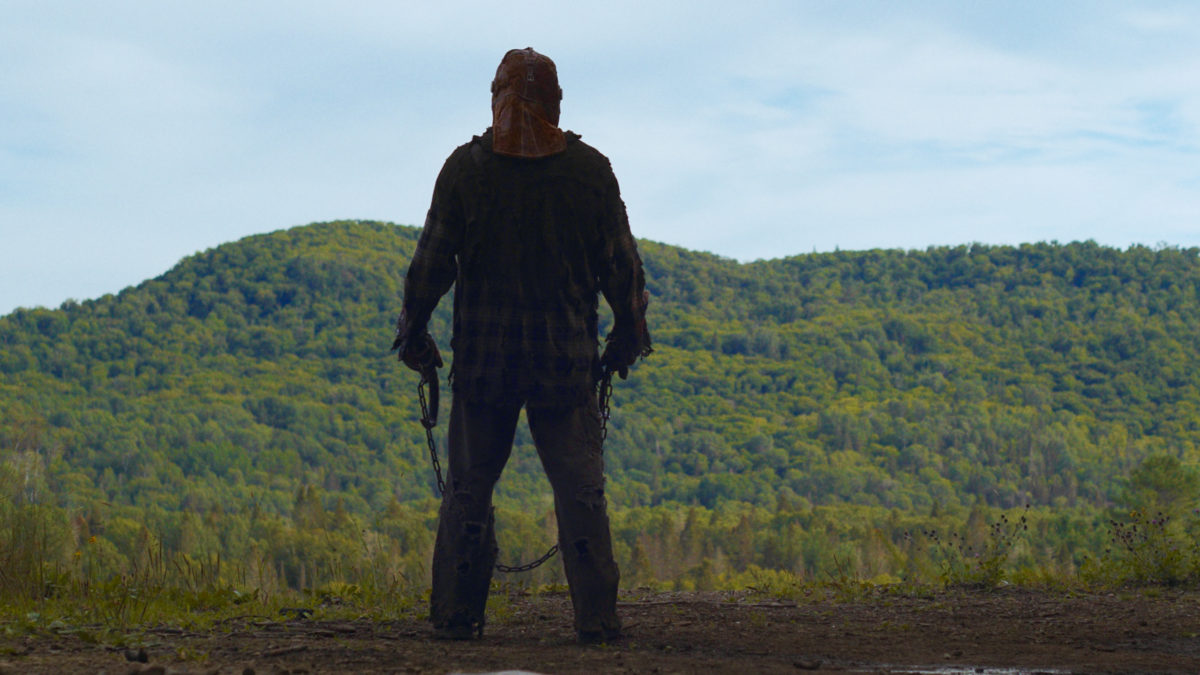
What new perspective can one bring to the horror genre? With his directorial debut, Chris Nash gives this question its resoundingly brutal, formally fascinating answer. Primarily following a murderer’s steps and slashes through his travels terrorizing those near a remote cabin, the wonderfully Béla Tarr-esque In a Violent Nature sticks to its meticulous conceit and delivers one of the most chilling horror movies I’ve seen in years. – Jordan R.
Where to Watch: Theaters
Inside the Yellow Cocoon Shell (Phạm Thiên Ân)
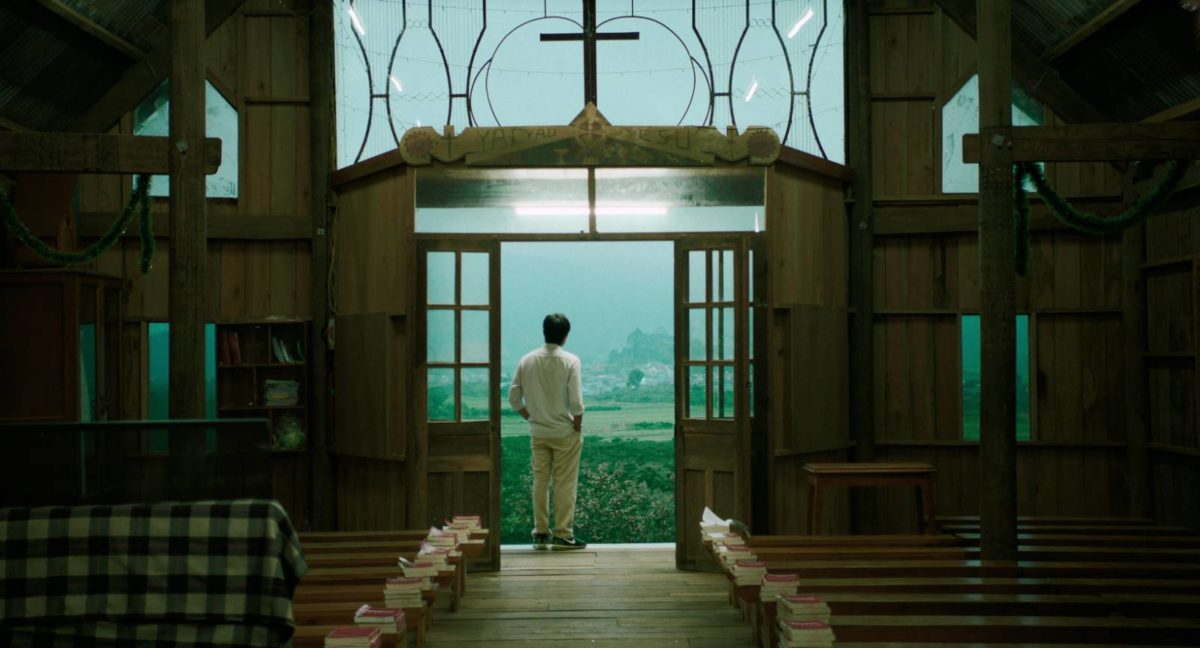
Early into Pham Thien An’s sprawling, stupefying Inside the Yellow Cocoon Shell, there’s a shot that manifests Caravaggio inside a shack in rural Vietnam. Having traveled from Saigon to his home village to attend the funeral of his sister-in-law, Thien (Le Phong Vu) is visiting a local elder who sowed a shroud for the departed. The twenty-something wants to pay for the service; the old man doesn’t take money from neighbors. He does accept the company, though, and very generously spills a whole cascade of memories from the Vietnam War, laying bare an old bullet scar on his ribcage. And as Thien bends to graze the bruised skin under the warm, caliginous light, Pham frames the moment as one of reverential awe, an image modeled off of Caravaggio’s “The Incredulity of Saint Thomas.” It’s a beautiful shot in a film full of them. That it comes near the end of a particularly intricate 24-minute take is a testament to Pham’s mastery of craft; that this three-hour odyssey is only his first feature only adds to the wonder. – Leonardo G. (full review)
Where to Watch: Kino Film Collection, VOD
I Saw the TV Glow (Jane Schoenbrun)
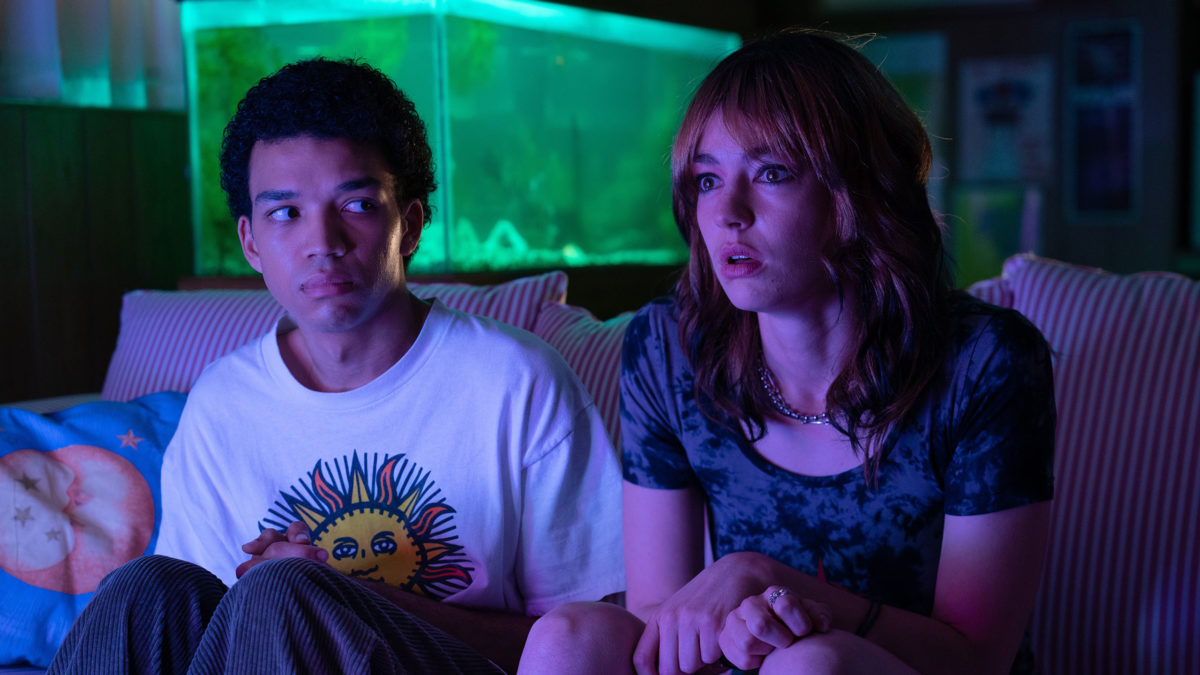
Tender yet rageful, quiet yet deafening, intimate yet expansive, Jane Schoenbrun’s I Saw the TV Glow is a towering achievement of total artistic freedom, the kind of work where certain images will be eternally burned into your mind and the feelings it exudes will linger far after the credits roll. Expanding the aura of loneliness from We’re All Going to the World’s Fair into a vastly more ambitious, layered canvas, Schoenbrun’s third feature tells the story of Owen, played early on by Ian Foreman and later by Justice Smith in a revelatory performance. Following the isolated journey of questioning his identity through childhood and adulthood, we witness his special infatuation with a late-night TV show and the ineradicable bond it creates with another lonely soul, Maddy (Brigette Lundy-Paine). The deeply expressive, imaginative ways in which Schoenbrun is able to articulate one’s struggle with identity is nothing short of staggering. This may not be a horror film in the conventional sense––in fact, every directorial decision assertively refutes convention––but I Saw the TV Glow emphatically argues nothing is more terrifying than being trapped in a body you don’t desire and having no words to properly express the feeling. – Jordan R. (full review)
Where to Watch: Theaters, VOD
Last Summer (Catherine Breillat)

Anne (Léa Drucker) is an esteemed lawyer: as uncompromising as she is in her line of work, she is free to enjoy her private life. In her ’40s she has it all, the job and the family she never thought would come. So begins Catherine Breillat’s newest film, Last Summer, which may be a remake of May el-Toukhy’s 2019 adulterous drama Queen of Hearts, but yields to the French filmmaker’s every wish. Even though we never get any backstory to Anne’s character, it’s hinted that her youth was not a pleasant one, as an early abortion took away the possibility to have children of her own. But now, in the summer of her life, she is a mother of two adopted girls and stepmother to an unruly teenager named Théo (Samuel Kircher), from her husband Pierre’s (Olivier Rabourdin) previous marriage. Amidst the idyllic rituals of daily life in the countryside, Anne seems composed and satiated. She is not one to look for trouble. – Savina P. (full review)
Where to Watch: Theaters
Janet Planet (Annie Baker)
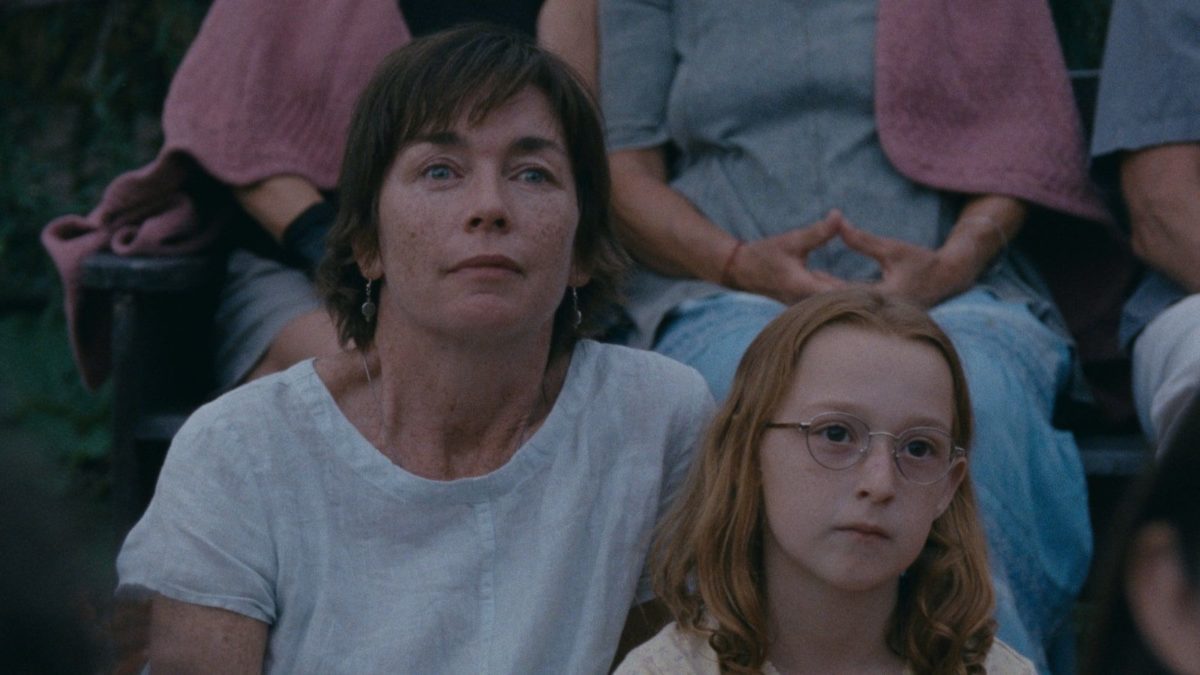
About halfway through playwright Annie Baker’s self-assured and pitch-perfect directorial debut Janet Planet, 11-year-old Lacy (Zoe Ziegler) rolls over in bed and turns to her mother Janet (Julianne Nicholson) with an innocent prompt. “You know what’s funny?” she asks. “Every moment of my life is hell.” At such a gentle moment, in such a casual way, she delivers a melodramatic gut-punch. You can’t help choking out a laugh. – Jake K-S. (full review)
Where to Watch: Theaters
The People’s Joker (Vera Drew)

It’s a genuine miracle that The People’s Joker has managed to make it to screens unscathed, especially considering the legal battles which dogged the 2023 TIFF premiere could easily have left it trapped in the vault forever. Many of the rave reactions from that festival were written solely within the context of such lingering threat, with many critics doubling-up as armchair legal experts, not analyzing the qualities of Vera Drew’s film so much as they were assessing the likelihood of whether anybody else would ever see it. Now that this unauthorized take on the DC mythos is defiantly arriving on screens––albeit with a lengthy legal scrawl preceding the action itself––it’s immediately obvious that writing about it solely within the context of whether it constitutes a serious copyright violation is something of an insult. – Alistair R. (full review)
Where to Watch: Theaters
Ryuichi Sakamoto | Opus (Neo Sora)
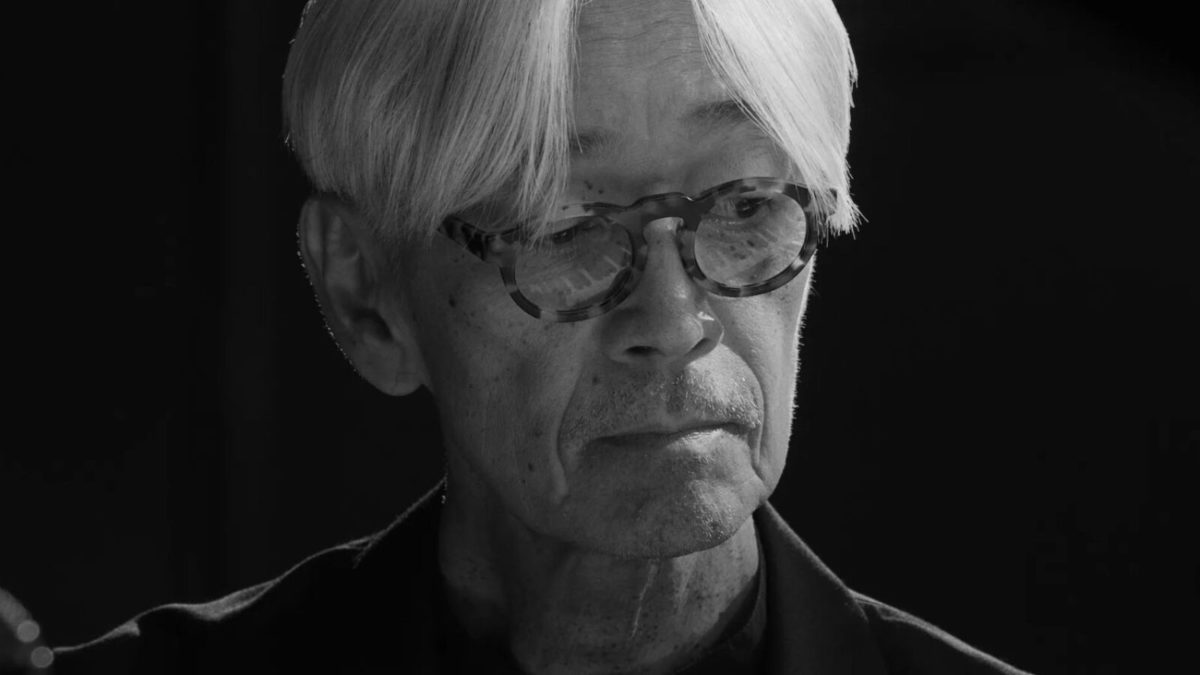
In a heartbreaking work that feels like a private personal home movie that the world is being graced with, Ryuichi Sakamoto’s son, filmmaker Neo Sora, captured one of his father’s final performances. Shot in beautifully austere black-and-white, Ryuichi Sakamoto | Opus focuses solely on the music, capturing a man contending with his physical limitations in what amounts to one of the final offerings of his astounding talent. It’s a treasure. – Jordan R.
Where to Watch: The Criterion Channel
Samsara (Lois Patiño)

“Did you know that we keep on hearing after we’re dead?” The question comes up early into Lois Patiño’s Samsara but haunts the film from first shot to last, doubling as a précis of the multisensory feast this extraordinary journey through bodies, time, and space packs throughout. “Watching” is too restrictive a word for the kind of experience Patiño has arranged. Here’s the rare film that invites your whole body into its universe––one whose haptic, aural, olfactive pleasures are just as vivid as its visual riches. It’s a tale that unspools as a Heraclitean river: you cannot step into it twice, for it is not the same film, and you are no longer the same person. – Leonardo G. (full review)
Where to Watch: Theaters
Honorable Mentions
- Art College 1994
- Blackbird Blackbird Blackberry
- Challengers
- Civil War
- Dad & Step-Dad
- Dune: Part Two
- Fancy Dance
- Flipside
- Gasoline Rainbow
- Green Border
- Horizon: An American Saga – Chapter 1
- How to Have Sex
- Hundreds of Beavers
- Inshallah a Boy
- In Our Day
- Last Things
- Love Lies Bleeding
- The Old Oak
- Music
- Nowhere Special
- Pictures of Ghosts
- Power
- Ren Faire
- The Shadowless Tower
- The Settlers
- Snack Shack
- Spermworld
- This Closeness
- The Tuba Thieves
As an additional note, we didn’t include a handful of films that had a one-week awards-qualifying run in 2023, including Tótem, Perfect Days, The Taste of Things, About Dry Grasses, La Chimera, and Robot Dreams.
